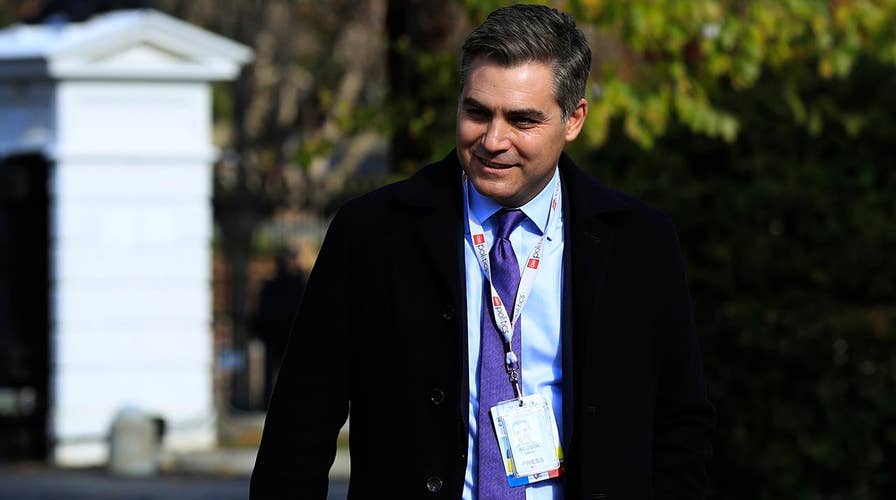CNN and its White House correspondent, Jim Acosta, again accused the Trump Administration of violating their constitutional rights in new papers filed with the U.S. District Court on Monday after spending much of the weekend exchanging legal threats in the wake of Friday’s ruling by a federal judge temporarily restoring Acosta’s credential.
Acosta was informed of a “preliminary decision” for his White House credential to be revoked, once again, after the temporary 14-day order expires. The attorney for CNN and Acosta claim that the White House is attempting to punish the reporter based on “retroactive” application of rules that aren’t written and requested a hearing for the week of Nov. 26.
The filing also claims the Trump administration did not respond to CNN’s offer to work with the White House on establishing protocols for future press conferences.
The White House sent a letter to Acosta on Friday that was submitted as evidence in the court filing. The letter explains that Acosta’s credential was revoked due to inappropriate conduct, noting that the White House didn’t think formal rules for journalists were necessary prior to the CNN reporter’s actions. The letter explains that reporters are expected to ask a single question when called up upon and then yield the floor unless a follow-up is permitted.
“These basic commonsense practices are necessary for orderly press conferences that are fair to all journalists in attendance,” the letter said.
Acosta’s "hard pass," which provided expedited access to the White House grounds, was suspended earlier this month after he engaged in a contentious back-and-forth with Trump during a Nov. 7 press conference. Acosta then refused to pass the microphone to a female White House aide and there was brief contact between the two.
The White House told Acosta that he “violated basic standards governing such events,” which resulted in his credential being revoked. The letter called it a “preliminary decision” and said the White House would consider any response that CNN or Acosta would like to submit.
Acosta’s legal team objected to the letter, calling it an “attempt to provide retroactive due process” in the papers filed on Monday.
“To say the least, the letter is a disappointing response to the court’s decision and our attempts to resolve the matter amicably,” Acosta’s attorney wrote in response. “More fundamentally, though, it is further evidence of your clients’ animus towards Mr. Acosta based on his work as CNN’s chief White House correspondent.”
The response also declared that Acosta’s legal team “will seek expedited discovery, including depositions, from all defendants on their intentions and their conduct.”
On Friday, U.S. District Judge Timothy J. Kelly ruled that Acosta’s pass be temporarily restored after hearing arguments from both sides. The judge, a Trump appointee, declared that precedent had been set that the White House should have given Acosta due process before taking away his credential and that harm to the reporter had already occurred. He also said that CNN is likely to succeed on Fifth Amendment grounds and that the harm to Acosta outweighs the government's need for an orderly press conference.
Following the temporary decision, Trump told Fox News’ Chris Wallace that he will kick Acosta out of press conferences if he "misbehaves" going forward.
Wallace asked what rules the administration would put in place going forward as a result of the judge’s decision.
“We’re writing them now. We’ll have rules of decorum, you know you can’t keep asking questions,” Trump said.
“The White House is continuing to violate the First and Fifth amendments of the Constitution. These actions threaten all journalists and news organizations. Jim Acosta and CNN will continue to report the news about the White House and the President," CNN said in a statement.
Last week, Fox News announced that it would support CNN’s effort to restore Acosta’s White House credential and filed an amicus brief with the U.S. District Court.





